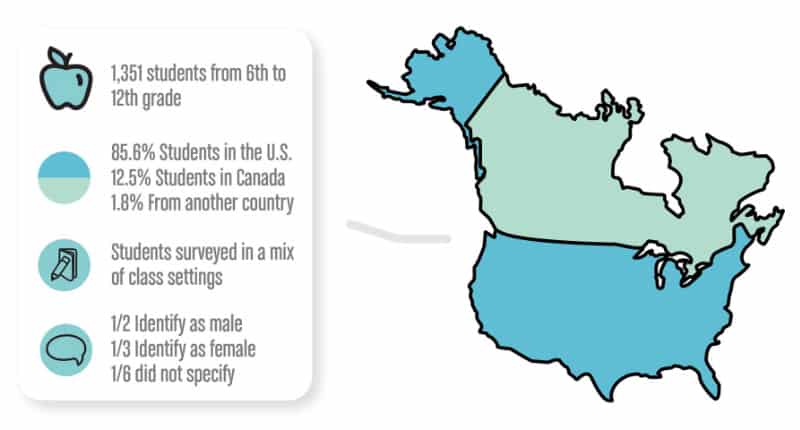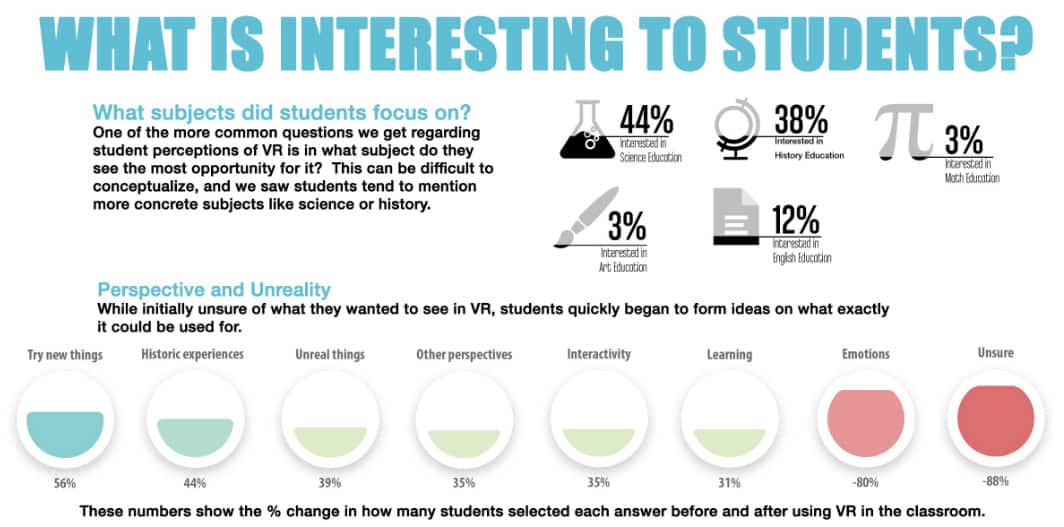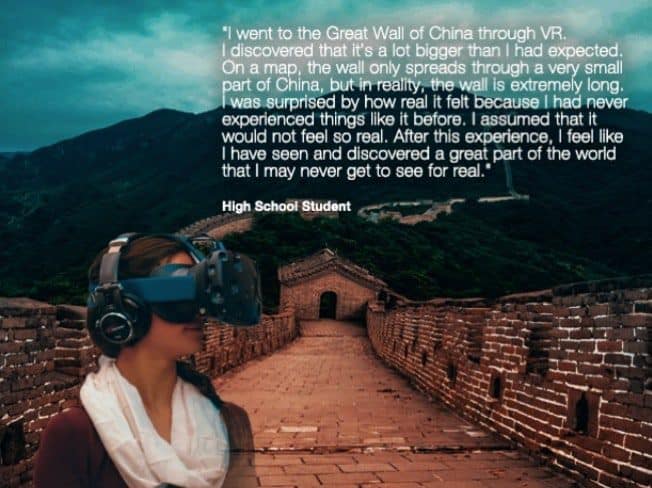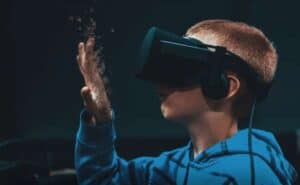There’s been very little study of VR in education and the impact on students. We often get the question at workshops and conference sessions. How do students see the benefits of virtual reality? Is there evidence that it enhances learning?
But the technology is new and unevenly distributed forcing us to rely on specific use cases (medical education, STEM programs) and a lot of anecdotal evidence. The engagement that VR generates is clear, but there’s a need for better data.
VR in education studies took a step closer to reality with the release of Foundry10’s report on student attitudes towards the technology. Foundry10 is an educational community research organization that distributed VR headsets to 40 schools and community centers.
While it seems to have global aspirations, the project focused almost entirely on schools in the U.S and Canada. And the hardware went to classrooms where teachers had expressed an interest in using it. So the users were largely self-selected. Not ideal, but it’s a start. Foundry10 deserves credit for meeting the challenge of getting VR headsets into 40 different schools.
All of the students were between the 6th and 12th grades with most around the 7th-8th grade levels.

VR in Education
You might also see the study limited by the fact that many of the students had little familiarity with virtual reality. Most were not aware of the current projects in education and other areas. Nonetheless, it’s fascinating to see where they thought it would be of help to their learning.
Students in the study saw the greatest potential for VR in science and history:

Two key points come from the data. In Foundry10’s All School Aggregated Findings – 2016-2017-VR:
In conversations with students and teachers we understand that adolescents sometimes feel history is inaccessible and that if they could “travel back in time” to see or participate in these events, they feel their understanding of what occurred would increase.
In addition, they were intrigued by the learning by doing approaches that it offers in STEM and the opportunity to make mistakes.
Science is also a popular subject for VR usage. Students often mention that they would be able to experience things or experiment with things (in an interactive capacity) that they might otherwise not be able to do in real life. Being able to experiment with things on a molecular level, playing around with “dangerous” chemicals, doing experiments with physics that are unique (e.g., not rolling a virtual ball down a ramp, kids know they can already do this, but watching the collision of larger particles, something they cannot do) is appealing on many levels to students.
Other subjects such as Art and English were also seen as benefiting from VR in education programs. A few of the students in art classes were already of Tilt Brush, one of Google’s most popular VR tools. And a number of students felt they would have a significantly greater understanding of novels if they could virtual step into the settings of what they read.
Just the beginning
 Foundry10’s work here is only the beginning of the data we will eventually have. But the students were realistic about the use of VR in education and its ultimate potential. As Road to VR notes,
Foundry10’s work here is only the beginning of the data we will eventually have. But the students were realistic about the use of VR in education and its ultimate potential. As Road to VR notes,
Overall, students had confidence that VR ed content developers were knowledgeable about the content they were creating. They also understood that the technology has a long way to go, but felt the simulations they experienced were realistic. Students also felt that VR was helpful to people, and should be more accessible.
Not surprisingly, they also pinpointed much of what can go wrong with VR in the schools. Students complained about the cables in the high-end setups – that it breaks the sense of presence – as does external noise (school bells, announcements, etc.).
The study is available in two documents and worth looking at if you are working in the K-12 or other educational environments.
This is welcome data if only the beginning of what we need. As students become more familiar with the technology, their insights will be an invaluable resource.
Emory Craig is a writer, speaker, and consultant specializing in virtual reality (VR) and artificial intelligence (AI) with a rich background in art, new media, and higher education. A sought-after speaker at international conferences, he shares his unique insights on innovation and collaborates with universities, nonprofits, businesses, and international organizations to develop transformative initiatives in XR, AI, and digital ethics. Passionate about harnessing the potential of cutting-edge technologies, he explores the ethical ramifications of blending the real with the virtual, sparking meaningful conversations about the future of human experience in an increasingly interconnected world.

